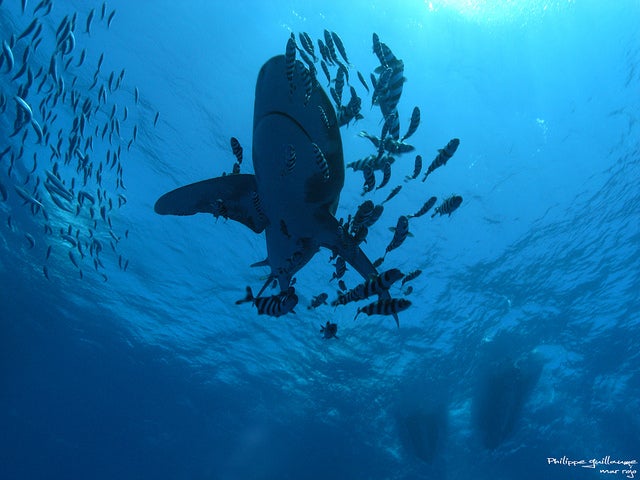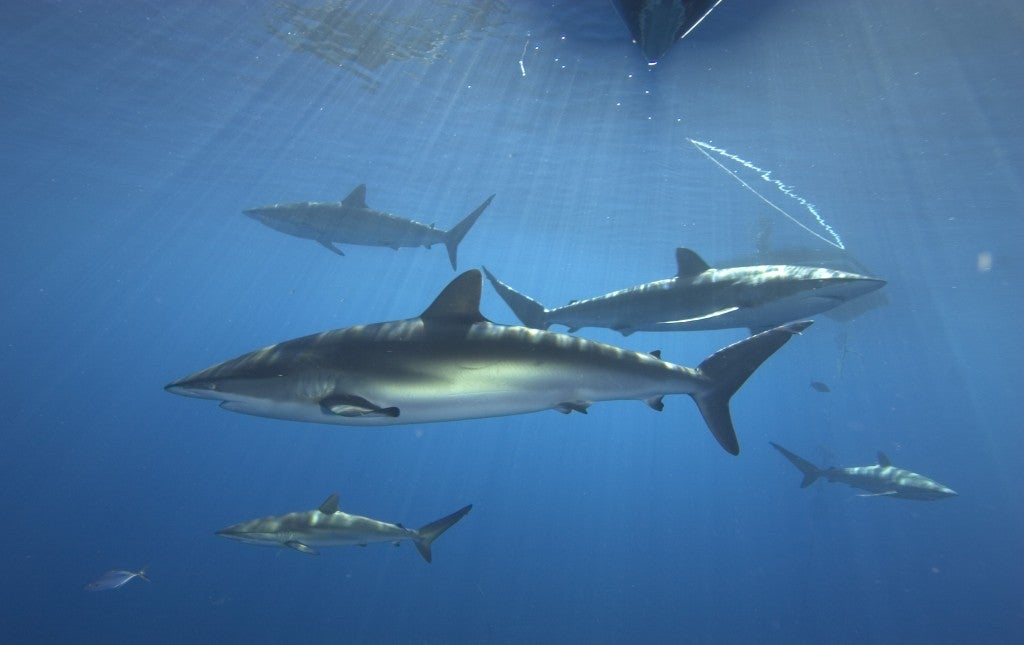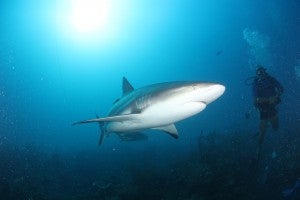Every year, Shark Week gives us a peek into the world of shark research and the amazing science and technology developing to study these captivating animals. This year, we were amazed by ultrasounds for pregnant hammerhead sharks and measuring a goblin shark’s bite. The latest science and technology can also help fishermen seeking other species to avoid sharks, protecting them from a significant source of injury and death while saving fishermen money.
Globally, shark bycatch represents one of the greatest threats – maybe the greatest threat, — to shark populations. Worldwide, sharks caught as bycatch can make up nearly half of the total reported catch, and that’s not counting the large amount of catch that goes unreported. Often, fishermen want to catch more valuable species like swordfish and tuna using pelagic longlines, one of the most prevalent fishing gears on the high seas, and hate accidentally catching sharks instead. So how can science and technology help solve this problem? Read More












